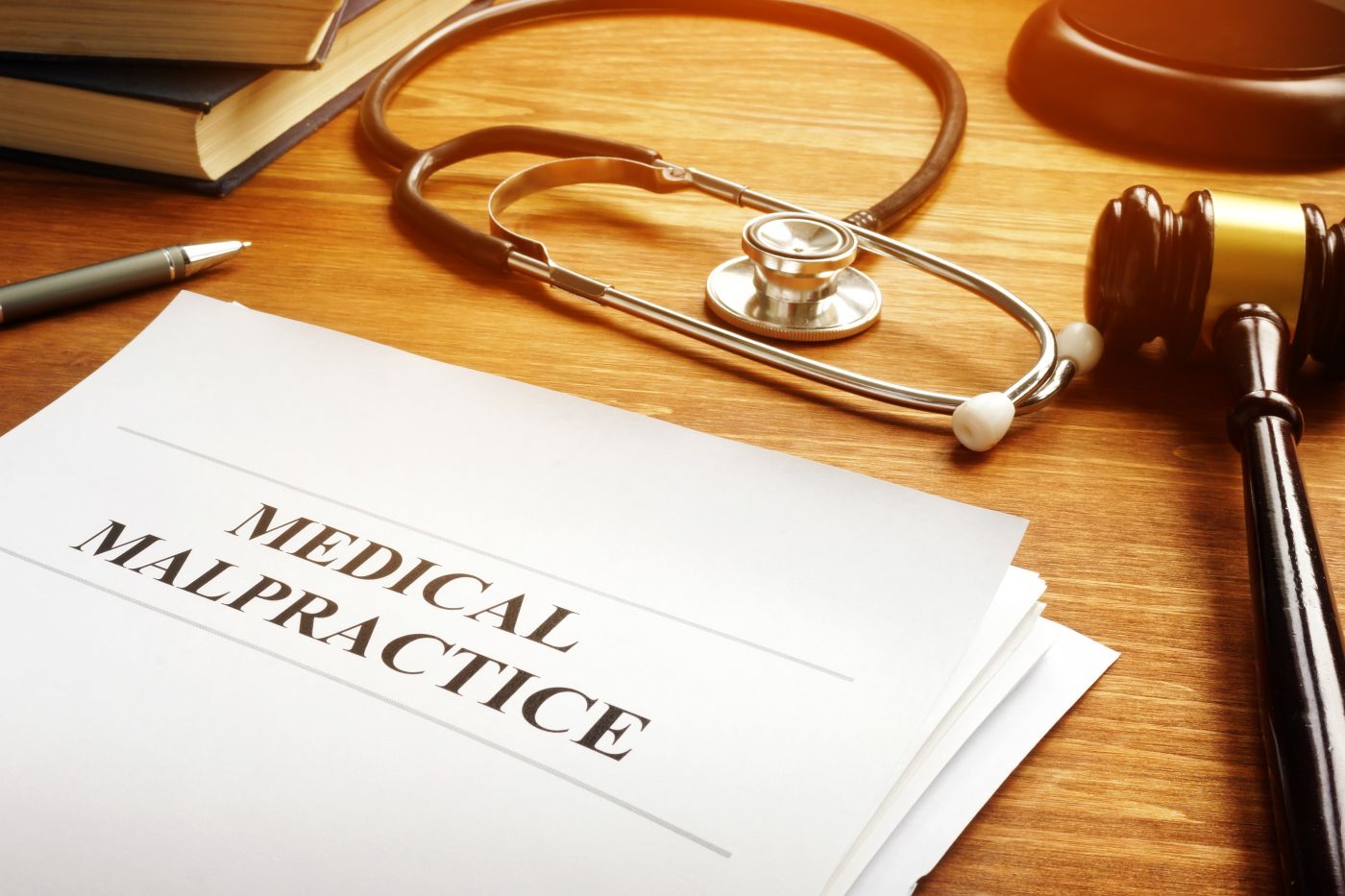
Medical malpractice affects many individuals across Missouri each year. When healthcare providers fail to meet the standard of care, patients may suffer severe injuries, lasting complications, or even wrongful death.
Understanding the most common types of medical malpractice cases can help individuals recognize when they may have a claim and what steps they can take to protect their rights. At The Tourigny Law Firm, LLC in Kansas City, Missouri, we’re here to help you through this process.
Misdiagnosis and Delayed Diagnosis
A misdiagnosis or delayed diagnosis can significantly impact a patient’s health. When a condition goes undiagnosed or is diagnosed incorrectly, patients may not receive the necessary treatment or may undergo unnecessary procedures. Some of the most frequently misdiagnosed conditions include:
Cancer
Heart attacks
Strokes
Infections
A delayed diagnosis can allow a disease to progress, making treatment less effective or even impossible. When physicians fail to order appropriate tests, misinterpret results, or dismiss symptoms, patients may have grounds for a medical malpractice claim.
Certain conditions, such as aggressive cancers or infections, require timely intervention. Any delay in recognizing these illnesses can have life-altering consequences.
Surgical Errors
Surgical errors can lead to severe consequences, from prolonged recovery times to permanent disability. Some of the most common surgical mistakes include:
Operating on the wrong body part
Leaving surgical instruments inside a patient
Performing the wrong procedure
Damaging surrounding organs or tissues
While some surgical risks are unavoidable, others result from negligence. When medical professionals fail to follow protocols, patients may experience unnecessary suffering and long-term complications.
Errors can also occur before and after surgery, such as administering improper anesthesia or failing to monitor a patient’s condition post-operation. These mistakes can increase the risk of infections, internal bleeding, and other serious medical issues.
Medication Errors
Prescription and medication errors can cause significant harm, especially when patients receive the wrong dosage or an inappropriate drug. Some of the most common medication-related mistakes include:
Prescribing the wrong medication
Administering an incorrect dosage
Failing to check for drug interactions
Mislabeling medications
Medication errors often occur due to miscommunication between healthcare providers, pharmacists, and patients. When doctors fail to review a patient’s medical history or a pharmacist misfills a prescription, the consequences can be severe.
In hospital settings, medication errors may occur when nurses administer the wrong drug or fail to monitor a patient’s response to a new prescription. Certain high-risk medications, such as anticoagulants and opioids, require precise dosing to avoid severe side effects.
Birth Injuries
Birth injuries can have lifelong consequences for both the child and the parents. Medical professionals have a duty to monitor both mother and baby throughout pregnancy, labor, and delivery. When they fail to act appropriately, preventable injuries may occur. Some common birth injuries include:
Cerebral palsy
Brachial plexus injuries
Brain damage due to oxygen deprivation
Fractures and nerve damage
Negligence during prenatal care, improper use of delivery tools, or failure to perform a timely cesarean section can all contribute to birth injuries. These mistakes may lead to significant medical expenses and lifelong care needs.
Birth injuries can also result from undiagnosed maternal infections, improper fetal monitoring, or delayed responses to complications during delivery. Families facing these challenges often require long-term medical care, specialized therapy, and additional support services.
Anesthesia Errors
Anesthesia is a critical part of many medical procedures, but errors in administration can be life-threatening. When an anesthesiologist miscalculates dosages, fails to monitor a patient’s vital signs, or neglects to check for potential drug interactions, severe complications can arise.
Patients who receive too much anesthesia may experience oxygen deprivation, brain damage, or even death, while those who receive too little may wake up during surgery and endure significant pain.
Anesthesia-related errors can also include failure to review a patient’s allergies, administering medications that trigger adverse reactions, or using outdated or defective equipment. Because anesthesia impacts essential bodily functions, errors in its administration can cause permanent damage or life-threatening complications.
Hospital-Acquired Infections
Hospitals should be places of healing, but inadequate sanitation, improper sterilization, and poor infection control practices can put patients at risk. Common hospital-acquired infections include:
Sepsis
Methicillin-resistant Staphylococcus aureus (MRSA)
Pneumonia
Urinary tract infections from catheters
When medical facilities fail to follow proper hygiene protocols, patients may suffer preventable infections that complicate their recovery and require additional treatment. Patients with weakened immune systems, recent surgeries, or prolonged hospital stays face the highest risk of developing infections.
Infections acquired in medical settings can lead to severe complications, long-term illness, or even death if left untreated.
Emergency Room Errors
Emergency rooms handle high volumes of patients in critical conditions, but mistakes in these fast-paced environments can have serious consequences. Some common emergency room errors include:
Misdiagnosing life-threatening conditions
Failing to order necessary tests
Administering incorrect treatments
Discharging patients too soon
Because emergency rooms operate under stressful conditions, errors may occur due to miscommunication, understaffing, or inadequate training. When these mistakes result in harm, patients may have legal options.
Emergency room doctors must make quick decisions, but when those decisions stem from negligence, patients may suffer permanent health consequences.
Defective Medical Devices
Medical devices are intended to improve health outcomes, but when they’re defective, they can cause severe harm. Some common issues with medical devices include:
Faulty joint replacements
Malfunctioning pacemakers
Defective surgical implants
In some cases, the device manufacturer may be responsible for producing an unsafe product, while in others, a doctor or hospital may be liable for improper use. Patients harmed by defective medical devices may need corrective surgeries, long-term medical care, or other interventions.
Recalls and safety warnings about medical devices highlight the risks associated with faulty manufacturing or improper use in medical settings.
Lack of Informed Consent
Patients have the right to understand the risks and benefits of any medical procedure before consenting to treatment. If a healthcare provider fails to provide adequate information about potential complications, alternative treatments, or risks associated with a procedure, the patient may have grounds for a claim.
A lack of informed consent can lead to unnecessary suffering, worsened health conditions, and legal consequences for medical professionals.
Radiology and Lab Errors
Accurate diagnostic testing is crucial for proper medical care. Mistakes in radiology and laboratory testing can result in incorrect diagnoses, delayed treatment, or unnecessary procedures. Common radiology and lab errors include:
Misinterpreting X-rays, MRIs, or CT scans
Mixing up patient samples
Contaminating lab results
Failing to report abnormal findings
When these errors lead to a misdiagnosis or improper treatment, patients may suffer serious consequences. Diagnostic errors often result in unnecessary medical interventions or missed treatment opportunities, both of which can be harmful.
Holding Negligent Parties Accountable
When medical malpractice occurs, patients and their families often face significant challenges. The financial burden of additional medical care, lost income, and ongoing treatment can be overwhelming. Holding negligent healthcare providers accountable can help those affected secure the resources they need to move forward.
Holding negligent healthcare providers accountable also serves a broader purpose beyond individual compensation. By pursuing legal action, victims of medical malpractice can highlight dangerous medical practices, potentially preventing similar errors from happening to others.
Hospitals, clinics, and individual practitioners may be required to implement better safety measures, update protocols, or receive additional training to reduce the risk of future harm.
In addition, proving negligence in a malpractice case can provide a sense of justice and closure for victims and their families. Medical errors can lead to lasting physical and emotional trauma, making it essential for those responsible to be held liable for their actions.
A successful claim can’t only help with financial recovery but also reinforce the importance of accountability within the healthcare system.
Contact The Tourigny Law Firm, LLC Today
By understanding the common types of medical malpractice cases in Missouri, individuals can better protect their rights and seek justice when negligence leads to harm. If you’re looking for an experienced medical malpractice lawyer across Kansas or Missouri, call The Tourigny Law Firm, LLC today to get started with our services.



